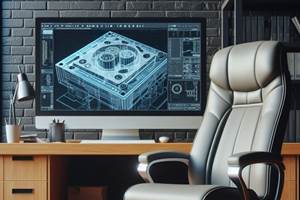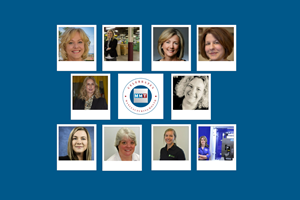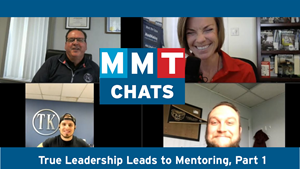Benefits of a Learner-Centered Educational Philosophy
Finding, Training & Retaining Employees, Part 10
In April, we discussed the importance of establishing a solid educational philosophy prior to implementing a training program to drive decision-making. This philosophy should be learner-centric and built with the end in mind. Here, we will explore the importance of having such a learner-centered philosophy.
There are two distinct philosophical approaches a company can take with its training program: a program solely focused on the company, or a program focused on developing and enriching the person.
In the first model, the company may build the program with only money and efficiency in mind, or it might build the program out of an obligation to its customers. If the organization’s leadership believes training is a necessary evil, the program will fail. It will be the first expenditure cut from the budget when finances get tight and when there is a lot of work to be done.
Classes will be missed and assignments will not be completed. Trainees and middle managers will find the whole experience to be burdensome. Trainees will begin to feel as though their employers are leveraging the training against them. For example, trainees may feel an attitude of “take these classes or you won’t get that raise you have been hoping for” coming from their managers.
Within this model, the messaging to the employees is clear: we will develop your skills when there’s nothing more important to do. In other words, your development as a person is not as important as several other business variables. This will be obvious to the learners and will be reflected in their loyalty, commitment levels, work engagement and overall attitude.
Training and apprenticeship programs that are learner-centered are strikingly different. From the top of the organization, concern for the development of the learner comes first—always. This means that every strategy, every process, every class and every interaction considers the holistic development of the person first.
This person-centered approach generally reaches across three areas: attitude, knowledge and skills. Learner-centered programs are designed by people who understand that learning cannot be forced. A person’s attitude in how he or she approaches the learning is paramount to his or her success.
When this philosophy drives the development of a training program, the trainees know that their employer cares about them and their futures. They know their employer will not jeopardize the personal development of the employees unless absolutely necessary. The result is loyalty, hard work, innovation, dependability, drive and a positive work environment.
When the educational philosophy is learner-centered, improved efficiency and innovation will be achieved by default. Your company will be getting the best each person has to offer. Take time to evaluate whether or not you have approached training with the learner in mind, then make any necessary adjustments. You will not regret it.
Related Content
How to Improve Your Current Efficiency Rate
An alternative approach to taking on more EDM-intensive work when technology and personnel investment is not an option.
Read MoreTackling a Mold Designer Shortage
Survey findings reveal a shortage of skilled mold designers and engineers in the moldmaking community, calling for intervention through educational programs and exploration of training alternatives while seeking input from those who have addressed the issue successfully.
Read MoreWomen Impacting Moldmaking
Honoring female makers, innovators and leaders who are influencing our industry's future.
Read MoreICYMI: MMT Chats: True Leadership Leads to Mentoring, Part 1
This trio from TK Mold and Engineering in Romeo, Michigan, joins me to discuss the role of leadership and culture in mentorship. This episode is brought to you by ISCAR with New Ideas for Machining Intelligently.
Read MoreRead Next
The Role of an Educational Philosophy
Finding, Training & Retaining Employees, Part 9
Read MoreThe Role of an Educational Philosophy
Finding, Training & Retaining Employees, Part 9
Read MoreFinding, Training & Retaining Employees
In this multi-part series of articles, contributor Ryan Pohl, a journeyman CNC machinist who also holds a master's degree in industrial training and development, addresses the skilled-labor shortage and its potential to dramatically hinder the future sustainability and growth of the moldmaking industry.
Read More





.jpg;maxWidth=300;quality=90)

















